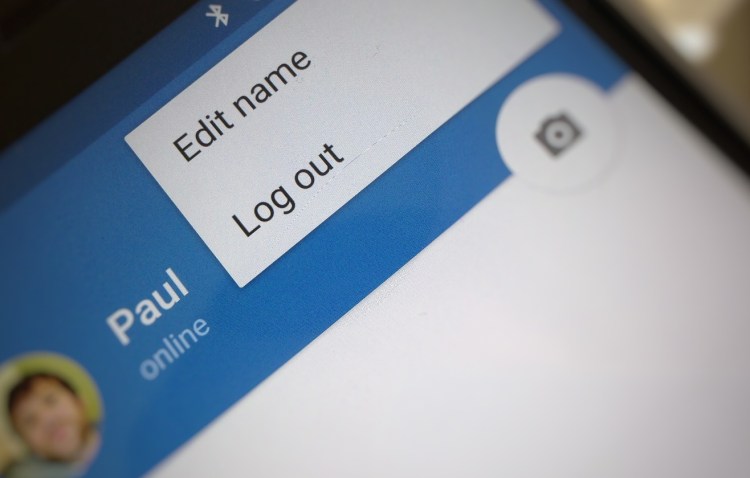For every yin, there’s a yang; for every positive, a negative; for every login, a logout. Actually, I made that last mantra up — but it’s still true, right? Sadly not.
I recently ventured home to visit my parents in a city where the likes of Uber have yet to really take off. So I thought I’d check out an alternative app that goes by the name of Gett — it’s different from Uber in that Gett is exclusively for beckoning one of those famous black U.K. taxis.
After logging in, it transpired that there were no taxis available anywhere in my vicinity on that day, or the next, so I decided to log out but keep the app installed for when I returned to London. Except I couldn’t find a logout function. After pinging Gett on Twitter, it transpired there was no way to log out, or even deactivate the app. The only way to “deactivate” the app was to literally uninstall the app from the phone.
@psawers unfortunately, we don't have that option :(
— Gett (@Gett) December 31, 2015
While not exactly the end of the world, it is the sort of thing that can perplex to the point of needing to know more. So I asked a company spokesperson to elaborate on the reasons for not being able to log out of an app that requires you to log in. I was told:
As you know, we are constantly developing and improving the user experience.
We are always open and encouraging feedback from our users and when we find something is of particular interest or importance to our users, when viable, we add it to our development cycle. If customers have particular concerns we have 24/7 customer care.
Or, to put it a little more succinctly, “no comment.” The fact that Gett couldn’t even provide a direct answer says a lot. This leaves me with the conclusion that it simply does not want people to log out, because it can’t then track my movements in the background. That’s not to say that is the reason, but in an era of serious trust and privacy issues in the technology industry, you could excuse a little consumer cynicism. I’m no fan of Uber, but at least it provides a direct logout function.
Gett isn’t the only company to distance itself from the trusty ol’ logout function. The mighty Facebook is big on the practice, too, with anyone using the Facebook Messenger app facing a similar quandary when searching for the holy exit button. While there are workarounds — for example, clearing the cache from within the settings on your device — ultimately the easiest way for the average user will be to uninstall the app.
Similarly, Facebook-owned WhatsApp doesn’t have a logout function per se; instead it opts for the extreme “Delete My Account” alternative. WhatsApp explains:
WhatsApp does not have a logout mechanism. You are automatically offline after 5 minutes of inactivity, but you will continue to receive messages without issues.
Just like Voice and SMS, WhatsApp is always on. We understand that this may raise concerns about battery life and data usage, but rest assured that we take these issues very seriously and strive to conserve battery and data as much as possible. We continue to make improvements in every version.
Sure, some people may be concerned about “battery life and data usage,” but equally some people may just wish an easy conduit for dissociating their account from their device for a short period.
Elsewhere, other services pushing to make logging out a thing of the past include caller ID startup Truecaller, which has a “Deactivate Account” option buried deep within the app under the “About” menu option, somewhere you really wouldn’t expect to find it.
The one thing all these services have in common is that logging in with your mobile phone number is either the only way, or one of the ways, that you log in to the service. But the fact that you log in using a SMS verification code rather than a password shouldn’t negate the need for an easy way to log out. Telegram works in more or less the same way as Messenger or WhatsApp or Gett in terms of how you activate your account and log in, yet Telegram has a clear, easy-to-find logout function.
I can just about understand to a degree why the likes of WhatsApp or Messenger might not have a logout function, even though I don’t agree with it, as they’re trying to mimic the “always on” nature of SMS or calls. With a taxi app, I see no reason to insist that you’re always logged in.
It’s becoming clearer than ever that companies simply don’t want you to log out. The question is, why?




